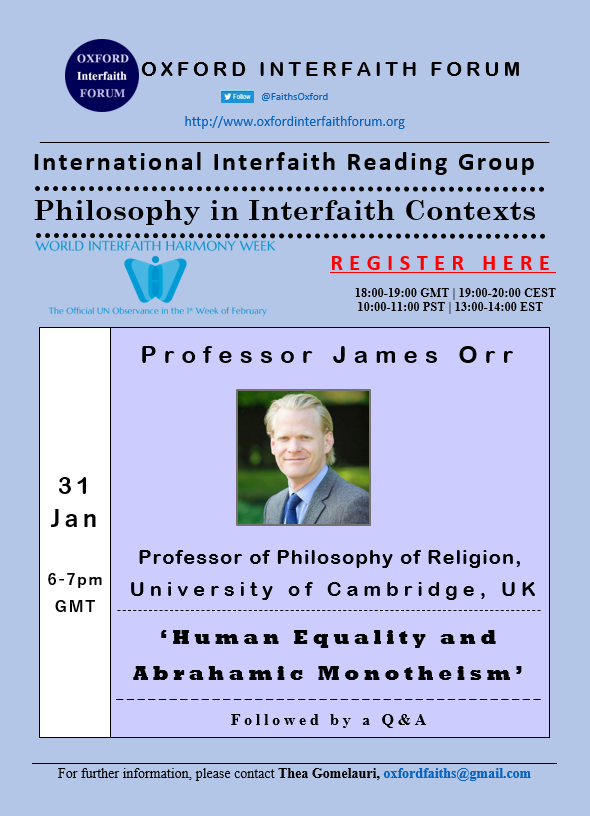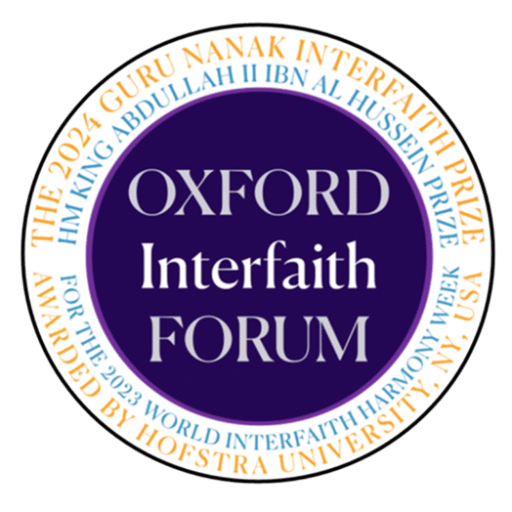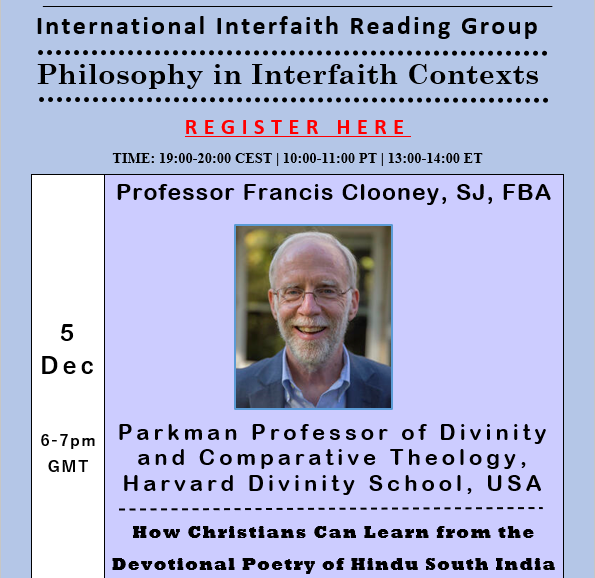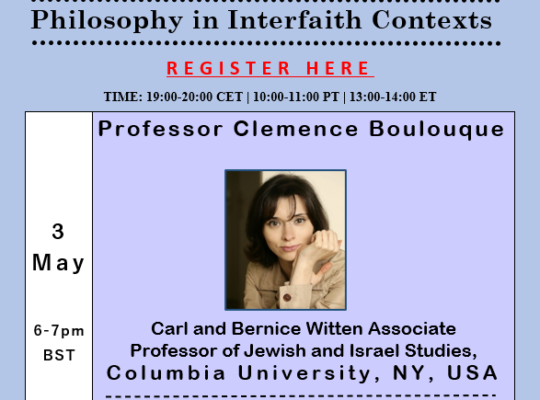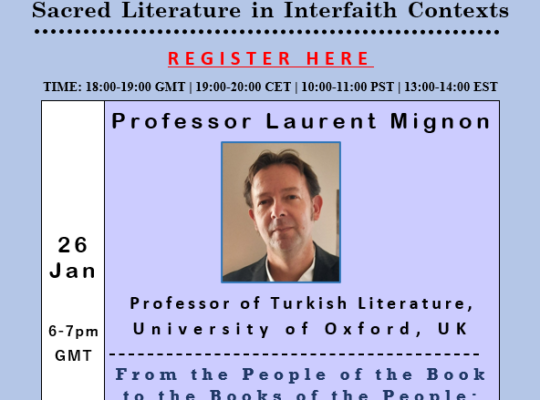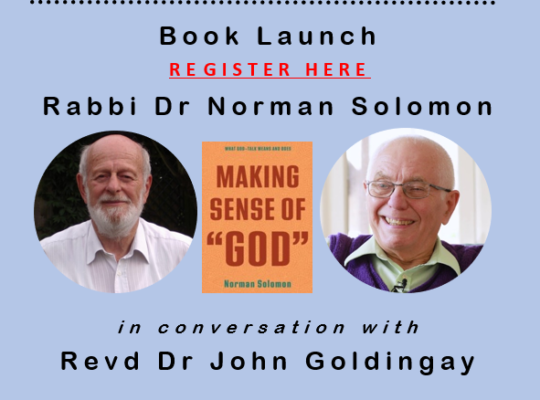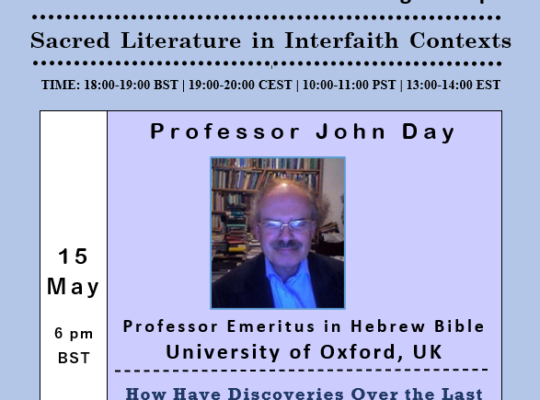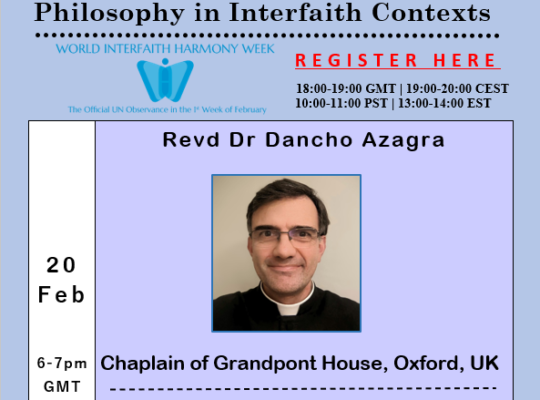5 December, 2022
We are delighted to welcome Professor Francis Clooney, SJ, FBA, Parkman Professor of Divinity and Comparative Theology, Harvard Divinity School, USA, to lead a session of the Philosophy in Interfaith Contexts Reading Group.
Here are the details of this fascinating session.
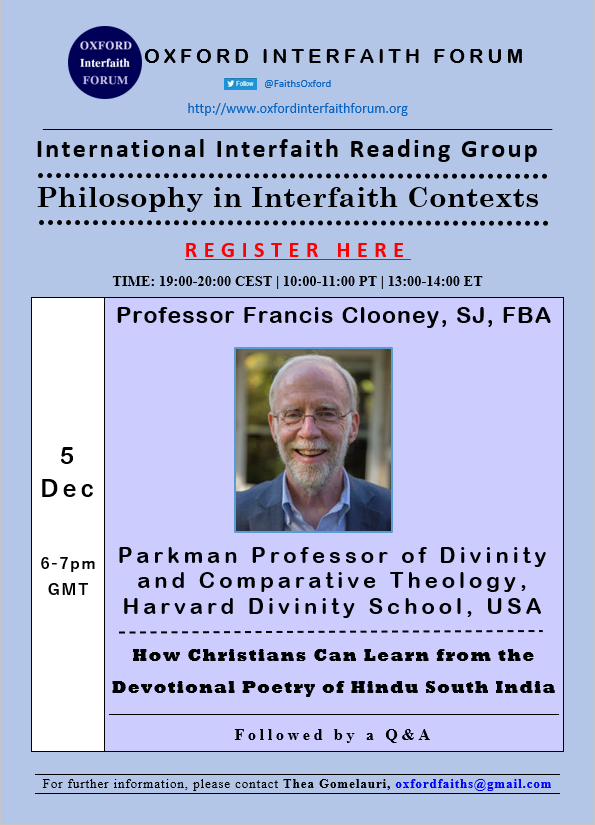
Topic: How Christians Can Learn from the Devotional Poetry of Hindu South India
Abstract:
Today and tomorrow
And then a little longer, your grace is all I have.
Surely, without you I am not — but see,
Narayana, without me, you are not. (Tirumalicai Piran)
Tamil is an indigenous language of southern India, one of several Dravidian languages having no original relationship to Sanskrit or the languages of the north. In the 7th century and thereafter, poets began composing enchanting verses in Tamil, dedicated most often to the great god Siva or to the great god Visnu (Narayana, ever with the goddess Sri), and to him also in the forms of Rama, Krishna, and other forms taken on earth. Over just a few centuries, twelve Srivaisnava poets — high and low status, mostly men, though one of the most famous is a woman — composed nearly four thousand verses, canonized in the Divine Canon (Divya Prabandham) that is still sung, studied, and commented on even today in the Srivaisnava community of south India, an ancient and now global community.
This poetry has interested me most, intellectually and in a heartfelt manner — and has challenged and enriched my life as a Christian (Roman Catholic, priest, Jesuit). It is in many ways so like the poetry of the Bible — think of the Psalms, the Song of Songs — and so theologically analogous to our own God — transcendent yet close by, loving as a parent, a lover, a child, gracious and forgiving. Reading such poetry is like reading the Bible — yet how can this be possible? Does God speak Tamil too?
For over forty years, I have been reading this poetry, learning from it, occasionally translating verses or whole poems, and in various classrooms using sample of such poetry or occasionally whole poems.
Whichever form pleases his people, that is his form;
Whichever name pleases his people, that is his name;
Whichever color pleases his people —
Who think upon this unwearying —
That is his color, he who holds the discus. (Poykai Alvar)
When in south India, I have on a number of occasions been privileged to hear it being recited in temples on the feast days of the various poets.
Even as I share this poetry in my own translations, I remain aware of my linguistic limitations, as a reader of Tamil; I am no singer, to be sure; and there is much I need still to learn after these forty years. But the poetry is, I have found, a forgiving and generous teacher and friends, appealing to us at various levels, meeting us as we are able. Or, more deeply, as the Srivaisnava tradition insists, God chooses to speak to us, to instruct and delight us in our own language, wherever, however we find words to praise, words to listen.
In the time when I did not know you,
When I was caught up in my great confusion
You made this servant love your service.
As an innocent dwarf you asked, “Three steps of land, Mahabali” and now again
You tricked one who did not know you —
You’ve mingled with my very life breath. (Nammalvar)
As might be expected, certain verses stand out in my memory, and my presentation will focus on such verses, which I will make available to my audience on December 5, including the three given in this abstract. The presentation will leave plenty of time for interfaith conversation.
Speaker: Professor Francis Clooney, SJ, FBA, is the Parkman Professor of Divinity and Professor of Comparative Theology at Harvard Divinity School, USA. His first sojourn in South Asia began in 1973. His fields of expertise include Hindu theology in the Sanskrit and Tamil languages, and the discipline of comparative theology — faith seeking understanding across religious borders. His books include His Hiding Place Is Darkness (2013), which offers prolonged meditations on Tamil poetry read with the Song of Songs.
Chair: Professor Chakravarthi Ram-Prasad, FBA, Distinguished Professor of Comparative Philosophy and Religion, Lancaster University, UK
Date: 5 December, 2022
Time: 18:00-19:00 GMT | 10:00-11:00 PST | 13:00-14:00 EST
Venue: Online
After registering, you will receive email from ZOOM containing information about joining the meeting. PLEASE check your spam folder if you do not see a Zoom email in your inbox.
If you would like to join the Philosophy in Interfaith Contexts Reading Group, please sign up here.
Related Sessions
- Qohelet: Search for a Life Worth Living

- Friends of the Devil: Rebellion and the Construction of Early Islamic Caliphal Sovereignty
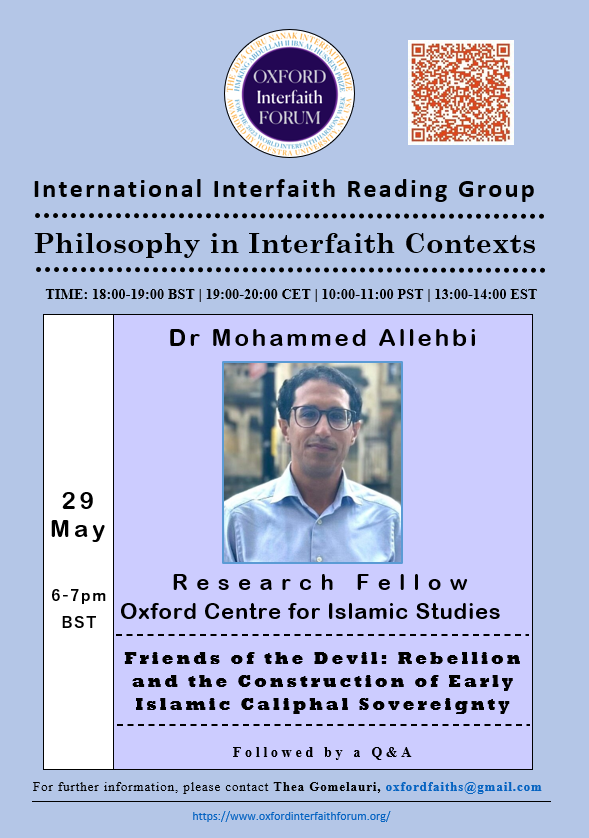
- God, Evil, and Suffering in Islam
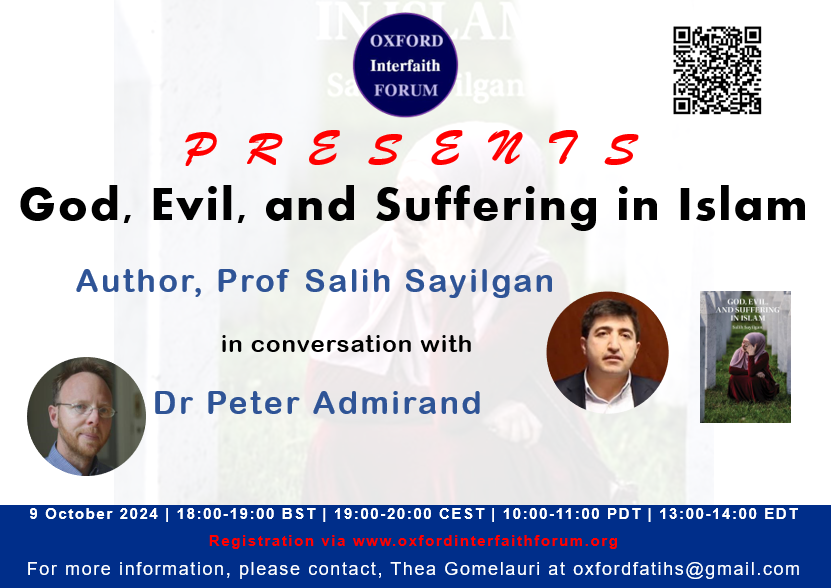
- Judaism Is about Love
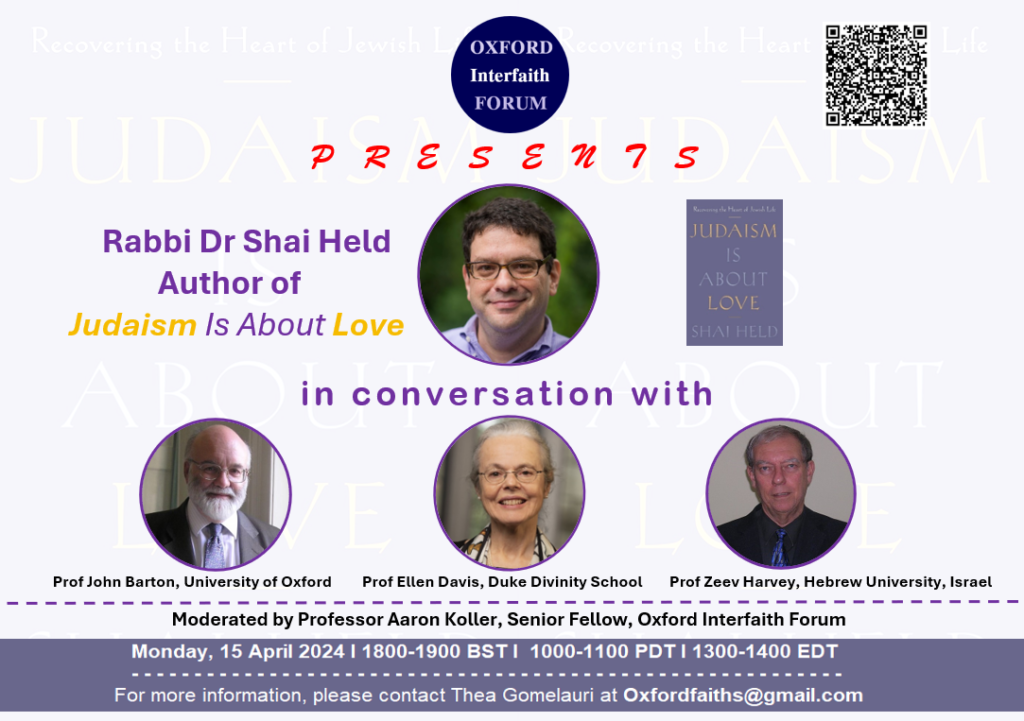
- The Ties That Bond Us: Differences of Sacred Values in Interfaith Organizing
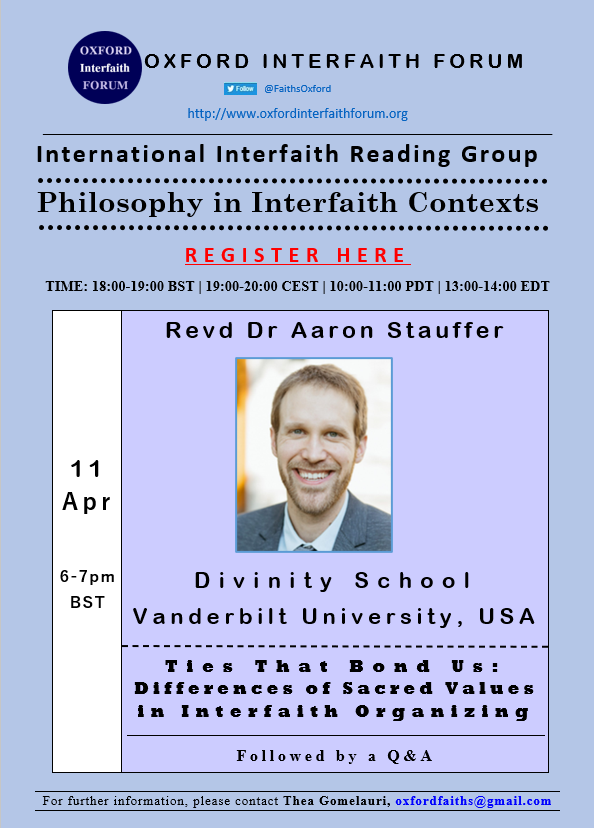
- When Salafi Muslims Meet Evangelical Christians: A Hopeful Dispatch from the United States
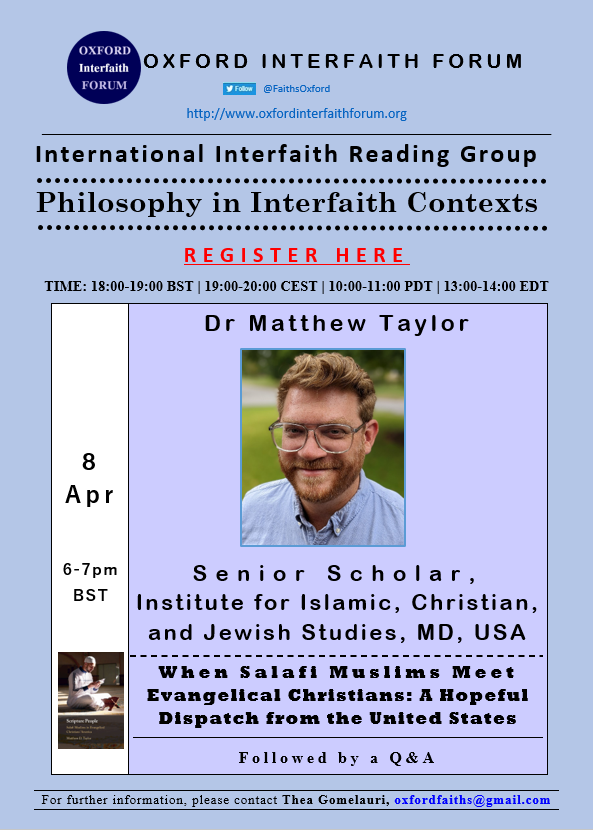
- The Varieties of Atheism: Connecting Religion and Its Critics
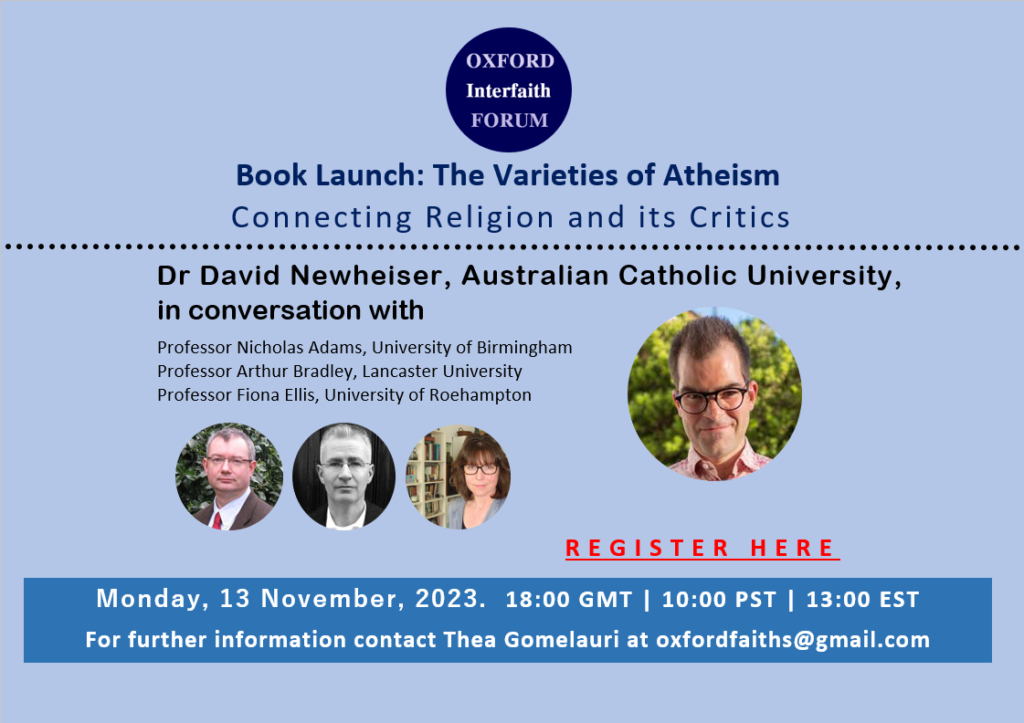
- Making Sense of “GOD”: What God-Talk Means and Does
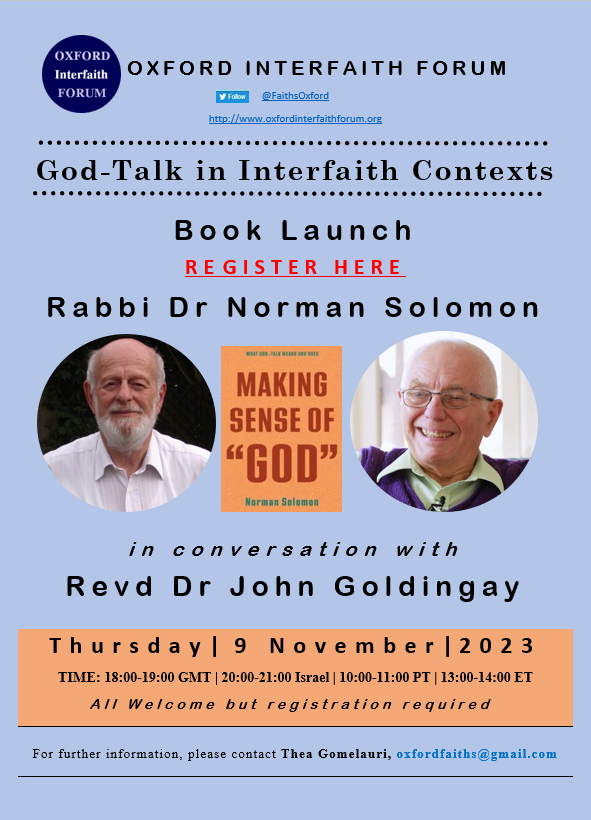
- A Jewish Philosophical Approach to Interfaith Relations: Re-reading Genesis According to Rabbi Jonathan Sacks
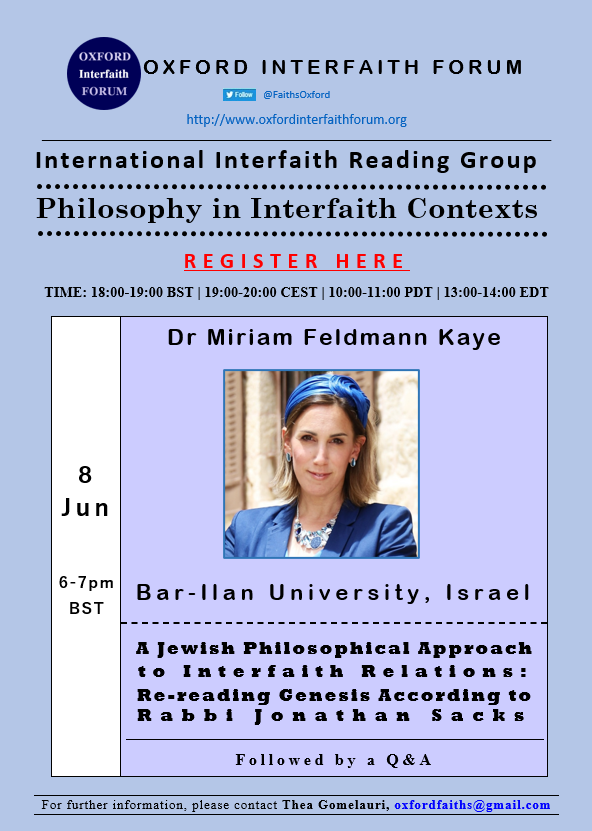
- Doing Comparative Theology Through a Decolonial Lens
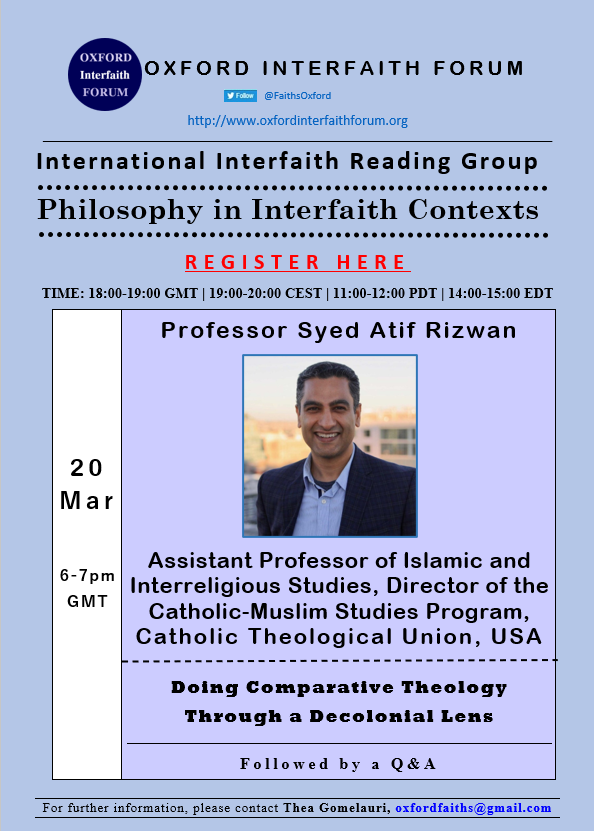
- Can Aristotle’s Ideas on Akrasia Shed Light on the Account of Original Sin in Gen 3:1-6?
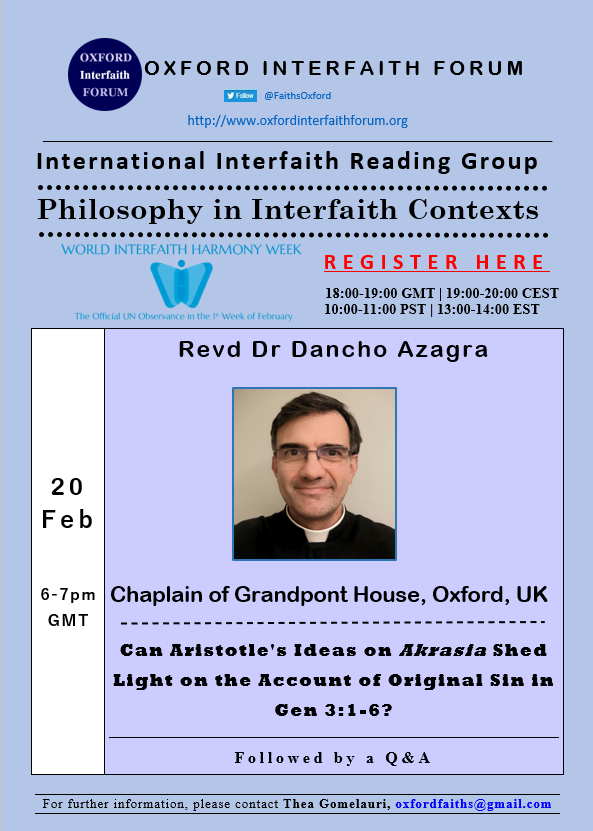
- Development in Catholic Teaching about and Relations with Jews since World War II
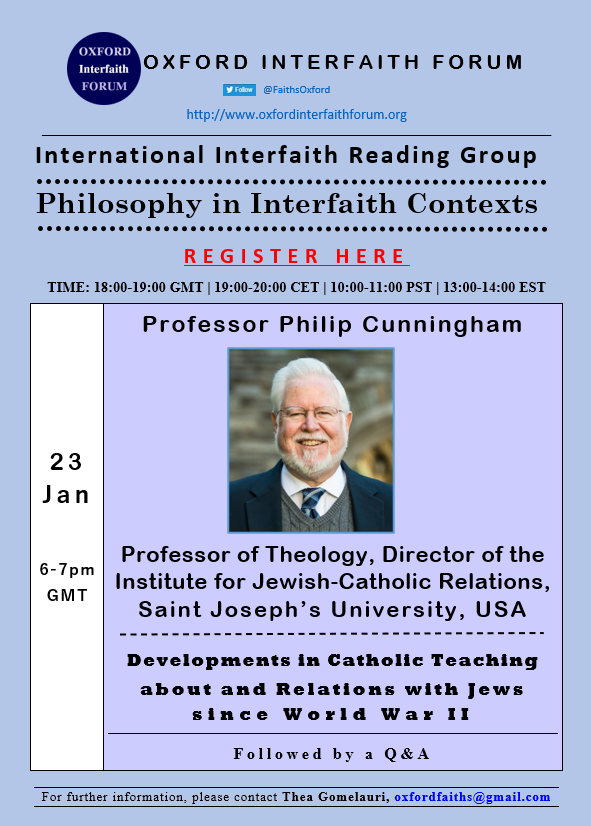
- How Christians Can Learn from the Devotional Poetry of Hindu South India

- Historical Suffering and Agency: Alternative Conceptions of Power in the Jewish Philosophical Thought of Hermann Cohen
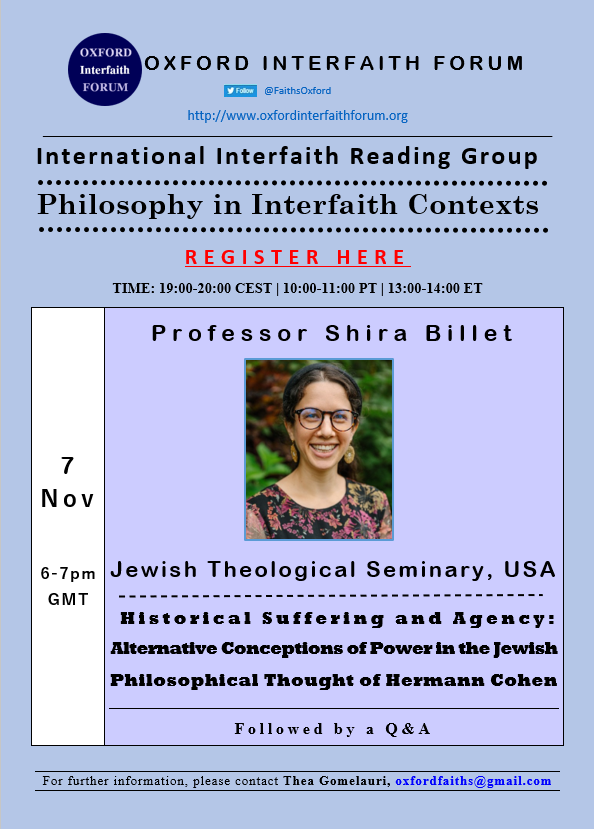
- Holistic Wisdom from a Chinese Perspective
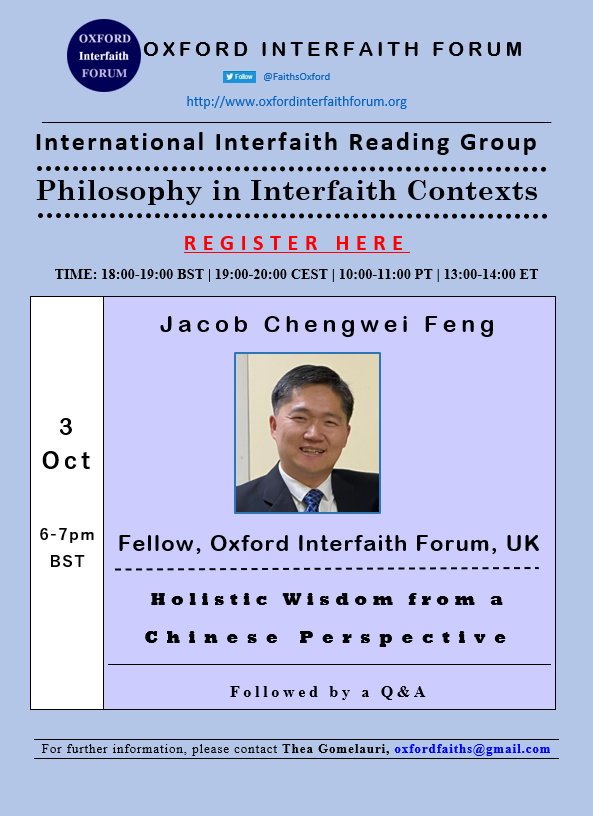
- An Islamic Philosophy of Plurality: Shah Waliullah of Delhi (1703-62) on the Unity and Diversity of Humanity
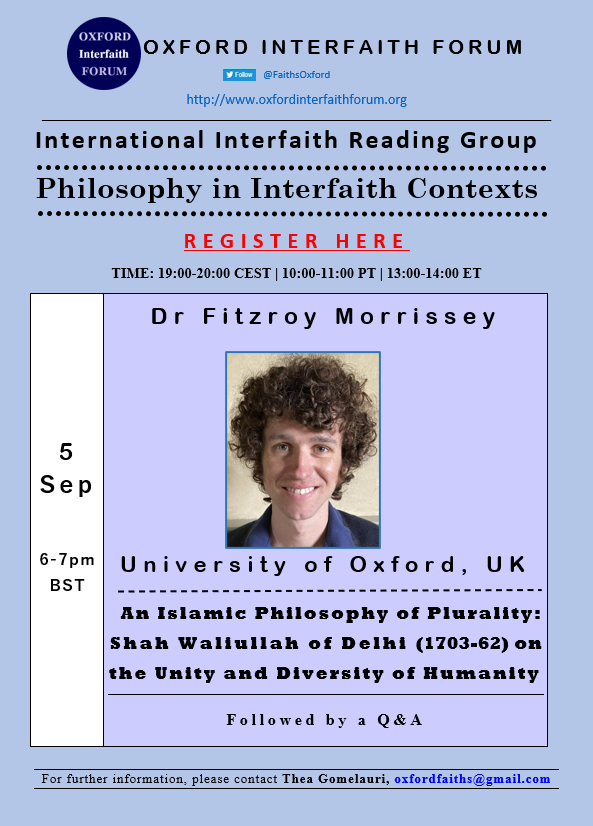
- Reaching beyond Metaphysics: God of Love, God beyond Being in Two Traditions
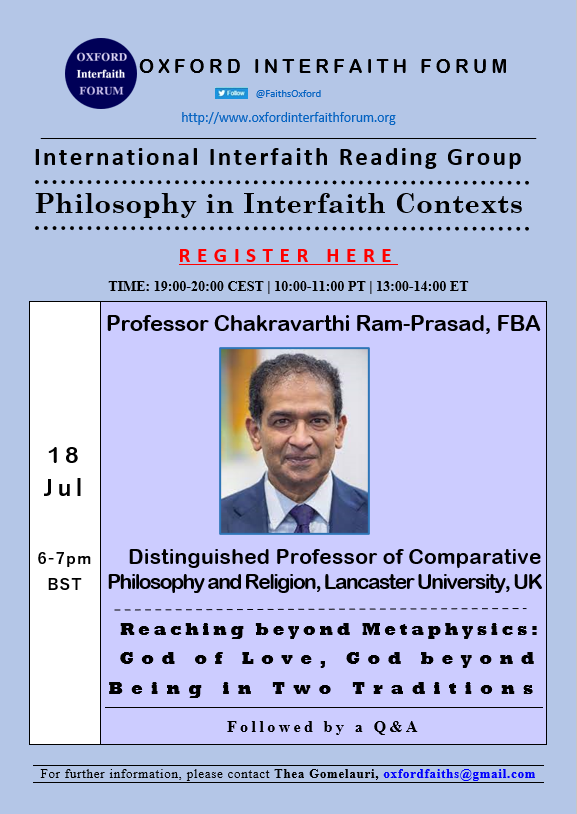
- Moral and Spiritual Courage: A Muslim Perspective
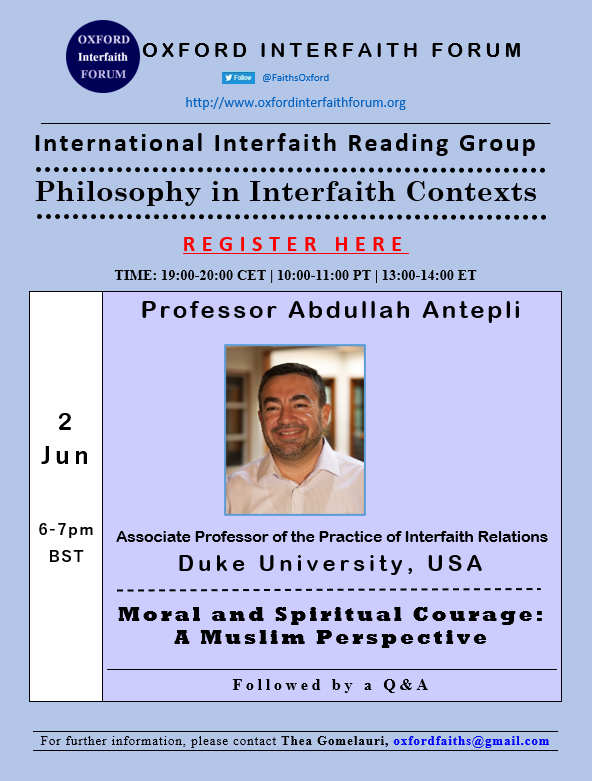
- A Religious Crucible: Elia Benamozegh (1823-1900), Jewish Universalism and Interreligious Encounters
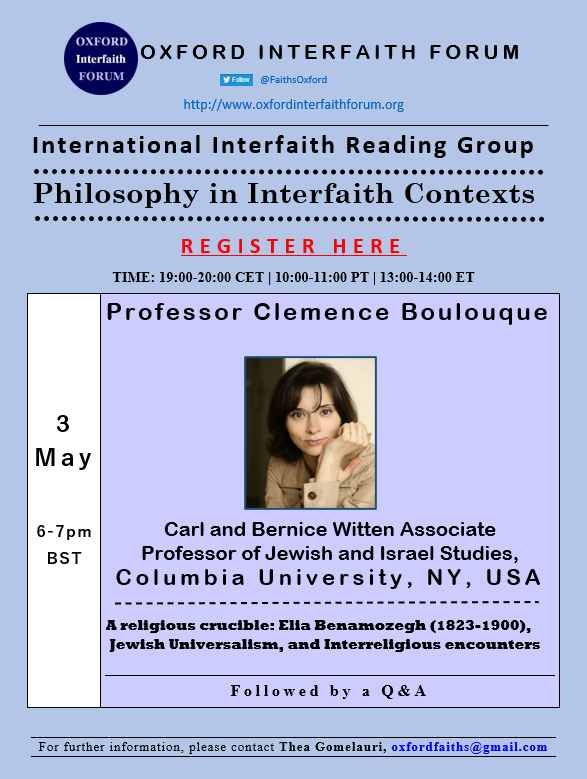
- Holy Envy: Faith, Truth and Interfaith Understanding
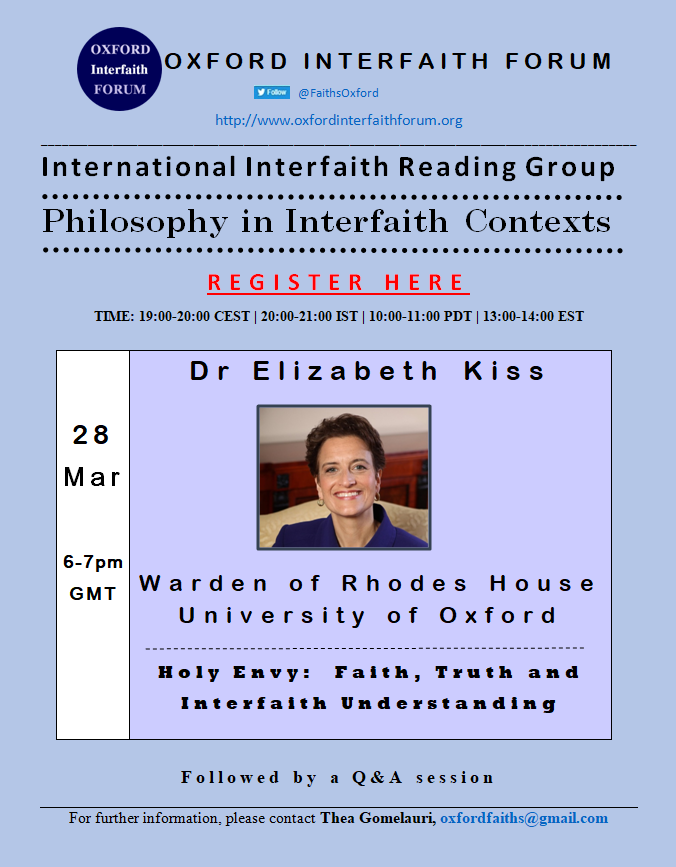
- Matteo Ricci and the Problem of Religious Translation
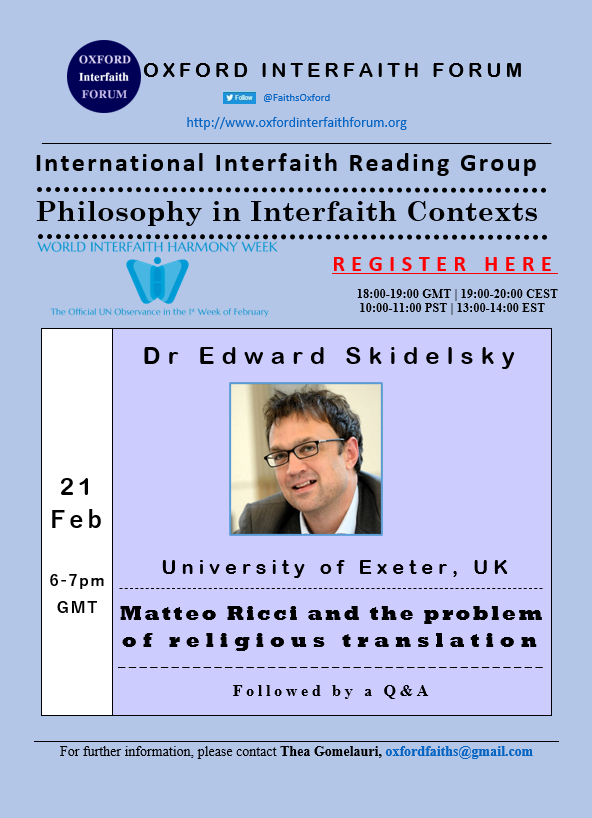
- Human Equality and Abrahamic Monotheism
